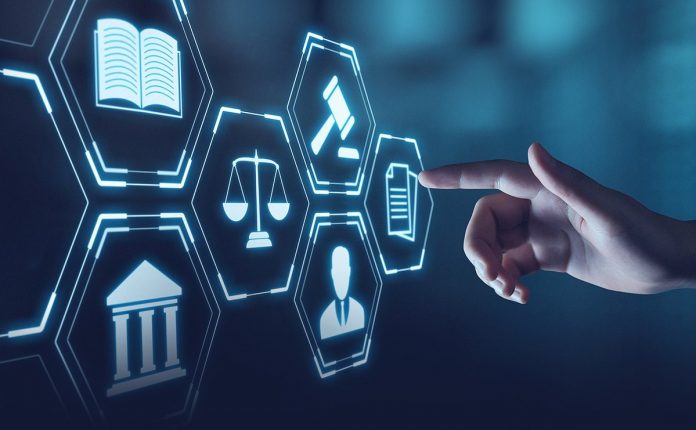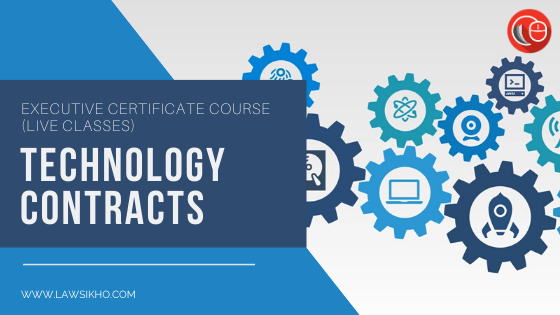The article is written by Stuti Jain, from Vivekananda institute of professional studies pursuing B.B.A.LLB(Hons) Course. This article explains the role that intermediaries play in protecting the Intellectual Property of the owner.
Table of Contents
Introduction
Have you ever noticed that youtube or Instagram often takes down a video contending that the content is infringing the copyright? The youth of many countries, nowadays, are making their careers out of “Vlogging” on platforms like Youtube. But they often have to face the takedown of their videos due to the copyright issues. Ever wondered what is the logic behind the same? Youtube acts as an intermediary between the provider and the users. Hence, these intermediaries have certain rights and responsibilities that they have to stick to, in order to protect themselves from the legal repercussions from the copyright owners. Not just Youtube but many other platforms acts as an intermediary between the provider and the general public.
What are intermediaries
According to Section 2 (w) of the Information Technology Act,2000 (IT Act, 2000), Intermediaries are the people who:
Intermediaries are the entities which enable people to use the internet.According to OECD, Internet intermediaries‘ bring together or facilitate transactions between third parties on the Internet. They give access to, host, transmit and index content, products and services originated by third parties on the Internet or provide Internet-based services to third parties. There may be numerous types of intermediaries present, with changing time. The following could be categorized a the intermediaries:
- Who on behalf of another person receives
- Stores or transmits that record
- Provides any service with respect to that record
- And includes:
Telecom service providers, Network Service providers, Internet service providers
The companies which are responsible for providing the users with the networks, internet etc. like Airtel or Vodafone, or Jio, which provides users with all these facilities.
Web-hosting service providers
Some of the best web hosting service providers in India are https://www.bluehost.com/; https://www.hostgator.com/ etc. The main job of these service providers is to provide you to make your website accessible via “World wide web”. It provides you with the space on the internet to put your websites so that the users could use it.
Search engines
As the name suggests, search engines are softwares which searches for the information regarding the keywords that we type-in by using the World Wide Web. For example: Google, or yahoo
Online payment sites
Websites through which we can make the payments. For example: Paytm or PayPal
Online-auction sites
As the name suggests, when the auction takes place online. The buyer or seller bid for the price of a particular commodity or service. eBay or DreamBox is an example of the same.
Online-marketplaces
Like Flipkart or Amazon that facilitate buying various products through the internet.
Cybercafes
Where an individual as a course of his business provides the internet to be used against some charges by the public.
Laws in this regard
- There is a concept of “Safe Harbour” in India and other countries, according to which, the intermediaries are protected against the legal liabilities that might arise if any illegal content is posted on their portal by the user or the seller( Section 79, IT Act,2000). It must be noted that the safe harbour could only be exercised if the intermediaries have performed sufficient ‘Due Diligence’.According to Rule 3(d) of The Information Technology (Intermediaries guidelines) Rules, 2011. The intermediaries have to inform the user if the content that they have posted is infringing any copyright, trademark or patent. Also, the intermediary shall not knowingly publish or host the information that is infringing any intellectual property. According to Rule 3(5), the intermediary has the right to terminate the access of the user in case they have published the infringing content despite the warnings.
The intermediaries also need to confer to the guidelines by the government with respect to the due diligence.
- In the Copyright amendment of 2012, Section 52, of the Indian copyright Act,1952 was amended. According to the amendment in Section 52(1), the amendment is for the “transient or incidental storage of a work or performance for the purpose of providing electronic links, access or integration, where such links, access or integration” are the intermediaries. Hence due diligence has to be followed under the amendment too. According to this amendment, in case the intermediary receives a complaint, in form of a written statement, from the rightful owner of the copyright, that his right has been infringed by any particular user, then it is the duty of the intermediary to take down the infringing content within 21 days of the complaint or, within 21 days of the order from a competent court.
- The procedure of such an exemption and other details, however, are not mentioned in the amendment. Such details are mentioned in the Copyright Rules 2013. According to Chapter XIV, Rule 75 of the rules, Talks about the Storage of transient or Incidental Copies of work (I.e, Intermediaries). Following is the procedure for filing a complaint under Rule 75:
- A complaint in writing has to be given by the copyright holder to the intermediary. Rule 75 mentions the are the particulars that the complaint should contain.
- When the intermediary receives the complaint, If he is of the view that the mentioned copyright is truly infringed, he shall take down the content or do any such suitable action within 36 hours till 21 days, from the date of receipt of the complaint or till he receives an order from the competent court restraining him from facilitating access whichever is earlier.
- The users requesting the content have to be shown that the content is not available due to the infringement, in form of a notice.
- In case, the owner isn’t able to produce the order from the competent court, the content could be restored. Also, the intermediary isn’t further responsible for any takedown notice of the copyright owner at a specific location if he fails to procure the order of the competent court within the time stipulated.
Laws in other countries
European Union
The E-Commerce Directive was introduced which illuminated the liabilities of society’s service providers. Article 12-14 of such directive.
Recital 42 of such directive says that the exemptions from the liabilities are only limited to the technical process of operating and giving access to a communication network over which information made available by third parties is transmitted or temporarily stored, for the sole purpose of making the transmission more efficient.
Recital 45 says that even when they are immune from the infringement in certain cases, the injunctions could be sought for the infringement.
Recital 50 appraises the importance of proposing the directive to make the stand of intermediaries clearer in the area of copyrights and related right infringement.
According to Article 12 (Mere conduit), The intermediaries for providing the service of transmission of the network, are not liable for information that is being transmitted, hence in case the information infringing the IP rights, these service providers are not liable. There are 3 conditions attached to it i.e:
- The service providers don’t initiate the transmission
- They don’t select the reviver of transmission and
- They don’t select or modify the information contained in the transmission.
Further, Article 12 explains 3 different kinds of service providers on the basis of how information is stored with them and that is:
- Automatic storage of information
- Intermediate Storage
- Transient Storage
However, the storage should be limited only for the period that is just reasonable enough to transmit the information and no further. However, the court and other administrative authorities have the right to require the intermediary to terminate such infringement. In short, courts and administrative authorities could order the intermediaries to stop the infringement.
Article 13 (Caching), elucidates that for the storage of the infringing content, the intermediaries are not responsible only in the following conditions:
- the provider does not modify the information;
- the provider complies with conditions on access to the information
- the provider complies with rules regarding the updating of 13 and 14, to monitor the information which they transmit or the information, specified in a manner widely recognised store, nor a general obligation actively to seek facts or and used by industry
- the provider does not interfere with the lawful use of technology, widely recognized and used by industry, to obtain data on the use of the information; and
- the provider acts expeditiously to remove or to disable access to the information it has stored upon obtaining actual knowledge of the fact that the information at the initial source of the transmission has been removed from the network, or access to it has been disabled, or that a court or an administrative authority has ordered such removal or disablement.
Again the courts have the power to require the intermediary to stop the infringement.
Article 14 (Hosting) explains that the intermediary is not responsible for the storage of the information on the request of the provider on the following conditions:
- He is not aware that such information is infringing in nature or such information is apparently infringing, or
- When the intermediaries come to know that such content is infringing, take down the information.
Court and administrative authorities have the power to terminate such infringement through the intermediary.
The United States of America
In 1996 the US government passed a law called “ Communications Decency Act (CDA) “. The main purpose of the act was for minors to come in contact with the adult speeches. The act was struck down due to the constitutionality of the act, but some of the sections of the acts remained in force. Like Section 230(c) which grants ‘ total immunity’ to the internet service providers, if the content is given by a third party. A new law in the US was enacted by the name of “ The Digital Millennium Copyright Act of 1998. The act implemented the treaties that the US signed with WIPO in 1996, i.e.,
The DMCA also addresses a number of other significant copyright-related issues.
Title II of the act deals with the Online Copyright Infringement Liability Limitations. A new section was inserted in the Copyright Act. Just like the Law in the EU, the E-Commerce directive, the US also has certain conditions for internet service providers in order to give them immunity.
Section 512, Copyright Act of 1976
- Section 512(a) – Transitory Digital Network Communications.
- Section 512(b)- System Caching
- Section 512(c)- Information Residing on Systems or Networks At Direction of Users
- Section 512(d)- Information Location Tools
- Section 512(e)- Limitation on Liability of Nonprofit Educational Institutions.
- Section 512(f)- Misrepresentations
- Section 512(g)- Replacement of Removed or Disabled Material and Limitation on Other Liability
- Section 512(h) –Subpoena To Identify Infringer
- Section 512(i)- Conditions for Eligibility
- Section 512(j)- Injunctions
- Section 512(k)- Definitions
- Section 512(l) –Other Defenses Not Affected
- Section 512(m)- Protection of Privacy.
- Section 512(n) – Construction.
According to Section 512(a) of the copyright act; the ISP is not liable for the following three reliefs:
- Monetary relief
- An injunction ( clause “j” mentions the exceptions where the injunction could be sought by the ISP)
- Other equitable relief
The main activities that the intermediary is engaged in are transmitting, routing, or providing connections and intermediate storage of the content. The immunity is available to the intermediary if:
- The transmission is initiated on request of a 3rd party.
- The activities are carried out automatically.
- The recipient isn’t selected by the ISP.
- The copy of the work isn’t made by the ISP.
- The work is not modified by the ISP.
The intermediaries can enjoy the liability only in certain conditions that are enumerated in 512(c). It is important that the Intermediary:
- Don’t have the actual knowledge that content is infringing.
- Is not aware of the facts through which the infringement becomes apparent.
- When he comes to know about infringement, he acts expeditiously to remove or disable access to such content.
In the USA, copyright infringement is seen from a dual perspective. Direct/ primary liability and secondary liability. The primary liability occurs when the infringement is done directly by the infringer i.e., the copying is done by the infringer without the knowledge of the copyright owner. The secondary liability occurs when the online intermediary has the knowledge of the infringement and it also depends on how the accused could have controlled the direct infringement. Secondary liability could occur if there is either contributory infringement or vicarious infringement. In the case of contributory infringement, it’s important to establish that online intermediary there is actual knowledge and material contribution to the direct infringement of the copyright. Whereas in vicarious liability, such intermediary would:
- Profit from the direct infringement
- Right to supervise the direct infringer
Even in India, such perspective is followed wherein the courts see the contributory and extent of knowledge with the intermediary- MySpace Inc. v. Super Cassettes Industries Ltd.
Though the laws in DMCA do not apply to the trademarks, in the USA, similar principles are applied in respect to online intermediaries. Even in trademark cases, the concept of Direct and secondary liability is taken into consideration.
Case laws
My Space Inc. vs Super Cassettes Industries Ltd
Super Cassettes Industries Ltd. (SCIL) is a company that owns various music labels like T-series. My space is an internet service provider which is based in the USA. In the following case, SCIL sued Myspace which allowed the uploading of the work, whose legal owners are the SCIL. Hence, SCIL filed the suit in High court Delhi, under Section 51 of the Indian Copyright Act for providing free access to the content belonging to the plaintiff. Also, it was claimed by the plaintiff that Myspace was earning profit by the advertisement placed on such infringing content. The court ordered in favour of the plaintiff and granted an injunction against myspace to not deal with the plaintiff’s work in future. The court denied giving the difference to the defendant of the safe harbour stating that “there is no reason to axiomatically make each and every work available to the public solely because the user has supplied them unless the defendants are so sure that it is not infringement.”
In the appeal to the SC of India, the decision of the lower court was however reversed. The court held that there is no reasonable ground, that Myspace had ”actual knowledge” of the infringement, nor it had any “reason to believe” as such. The provision of Safe harbour is available to the intermediaries like my space in such cases.
Tiffany v. eBay (U.S.)
This is a case that is related to the online infringement of a trademark through the online intermediary. This case highlights how intermediaries are responsible or immune in cases where a third party who is the actual infringer uses their website to sell the infringed product. Tiffany is a high-end retailer of jewels which claims that eBay, which is an online auction store, is using their brand name to sell the counterfeited products. The court ruled in favour of eBay (intermediary) since just a generalized knowledge, that the products sold on our website might be infringing in nature doesn’t make them liable for the contributory infringement (explained above). Moreover, the court noticed that eBay has removed every specific product which is counterfeited and that has come to their knowledge through their Verified Owner’s Rights Program (VeRO). eBay was at that time also investing a huge amount for anti-Counterfeiting measures which acted as supporting evidence in favour of eBay.
Viacom v. Youtube
In this case, Viacom’s copyrighted work was uploaded by a third party on the Youtube platform. The plaintiff Viacom used youtube for the infringement of the copyright. The plaintiff contended that :
- The youtube should be made liable for the vicarious infringement, since it had the ability and the power to supervise the direct infringer, and it made profits out of the infringement.
- Youtube had actual knowledge of the infringement.
However, YouTubetook the defence of the Safe Harbour” for intermediaries enunciated in Section 512 of DMCA. The court held that the “actual knowledge of the infringement involved the specific knowledge of infringement of the particular case and not the general awareness that the infringement of general works is done on their platform. Hence, youtube was not made liable for direct or secondary infringement.
Conclusion
Intermediaries are the platforms that are responsible for disseminating a small amount of information to a large number of people in one go. Most of the countries, intermediaries are provided with the indemnity against the Infringement of the IP. The rationale behind this is that due to the huge volume of users uploading content on these platforms, it is quite impossible for such intermediaries to check each and every activity and content. The philosophy of safe harbour mainly stands on the ground that these Online intermediaries have knowledge of the infringement or not. Since in law, “intention” is the main principle behind every crime, it is very important to interpret the intention and the knowledge of the infringement. One cannot make some entity liable if they don’t have sufficient knowledge of the crime that has taken place.
References
- https://www.wipo.int/
- https://www.americanbar.org/
- https://papers.ssrn.com/
- https://indiankanoon.org/
- https://cyber.harvard.edu/people/tfisher/cx/2012_Viacom.pdf
LawSikho has created a telegram group for exchanging legal knowledge, referrals and various opportunities. You can click on this link and join:
 Serato DJ Crack 2025Serato DJ PRO Crack
Serato DJ Crack 2025Serato DJ PRO Crack











 Allow notifications
Allow notifications


